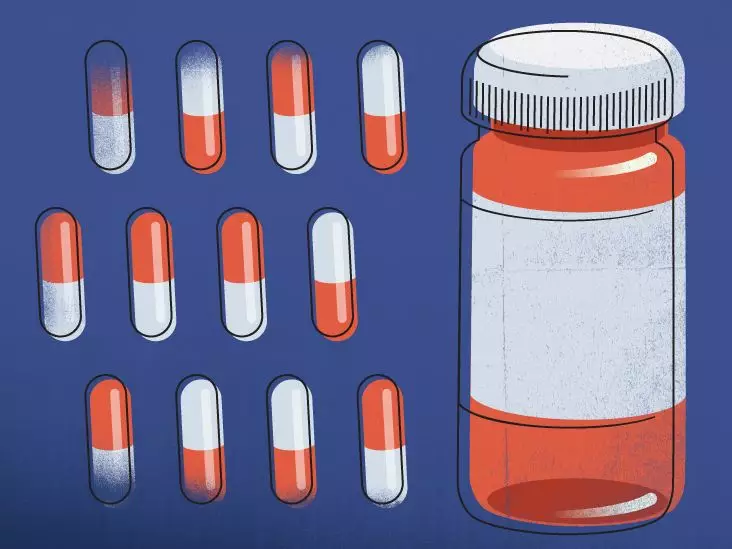Venlafaxine, an essential medication in modern psychiatric treatment, serves as a powerful option for those battling mood disorders. As a member of the serotonin-norepinephrine reuptake inhibitors (SNRIs) drug class, venlafaxine tackles various mental health issues, including generalized anxiety disorder (GAD), social anxiety disorder, panic disorder, and major depressive disorder. Available in extended-release (ER) capsules, it is designed to administer medication gradually, ensuring sustained therapeutic effects throughout the day. The brand name Effexor XR is commonly associated with this medication, and understanding its intricate dosages is crucial for anyone considering or currently using it.
Individualized Treatment Plans: The Foundation of Effective Use
No two patients have identical needs when it comes to mental health treatment, and venlafaxine is no exception. The prescribed dosage hinges upon a variety of individual factors, such as the specific diagnosis, the patient’s overall health, and their response to the drug. For this reason, collaborative discussions with healthcare providers are indispensable. It’s vital to remain cognizant of the fact that while common dosages exist, your tailored plan will be uniquely suited to optimize your mental well-being. Start low and adjust accordingly is the mantra healthcare professionals often adopt, allowing for careful monitoring of effectiveness and side effects.
Dosage Guidelines: A Closer Look
Venlafaxine ER capsules come in three primary strengths: 37.5 mg, 75 mg, and 150 mg. The typical starting dose for adults suffering from anxiety disorders typically begins at 75 mg once daily. However, if side effects appear imminent, physicians may cautiously initiate treatment with a lower dose of 37.5 mg for about four to seven days before escalating to the standard dose, demonstrating the need for careful observation during the initial stages of treatment.
For those struggling specifically with GAD, the upper limit of dosage is capped at 225 mg. Interestingly, social anxiety disorder shares this maximum dosage recommendation, though the initiation phase remains consistent at 75 mg. On the other hand, patients with panic disorder might experience more incremental increases, starting at 37.5 mg and potentially reaching the same cap of 225 mg within a week or so. Lastly, for major depressive disorder, the route is similar to that of GAD, spotlighting the consistent need for precision in dosage adjustments across various conditions.
Administration Tips: Maximizing Effectiveness
To achieve the most effective use of venlafaxine, patients should adhere to their prescribing doctors’ instructions explicitly. Taking the medication at the same time daily, whether in the morning or evening, ensures a routine that supports consistent blood levels of the drug. Patients should swallow the capsule whole unless instructed otherwise, and some opt to use reminders like alarms or pill organizers to avoid missed doses. Given the nature of mental health treatments, consistency is key—much like training for a marathon, regular intake paves the way for success.
Interestingly, while many patients may find long-term treatment beneficial, it’s essential to recognize the important role of continuous dialogue with healthcare providers for adjustments or potential reevaluations of treatment strategies.
Handling Side Effects: Caution is Key
Despite the medication’s many benefits, it is crucial to remain vigilant about potential side effects or adverse reactions. Common dilemmas include dizziness, sleepiness, and gastrointestinal upset. Should an overdose occur—potentially resulting in symptoms such as altered heart rate, tingling, or unusual sensations—immediate medical attention is imperative. For effects that seem more benign yet troubling, keep an open line of communication with your doctor. It’s pivotal to notify them about any reactions that interfere with your quality of life.
Navigating the Journey: The Necessity of Expert Guidance
As comprehensive as this guide may be, the insights shared here cannot replace the expertise of a licensed healthcare professional. The realm of mental health is intricate, and making informed decisions requires more than just understanding medication dosages—experiential knowledge from your medical team is invaluable. Venlafaxine may prove to be your ally in the struggle against mental health challenges, but your journey towards optimal wellness should be collaborative, guided by practitioners who comprehend the full spectrum of your individual needs. Embrace the journey with openness and adherence, and success in managing your mental health can become a tangible reality.

